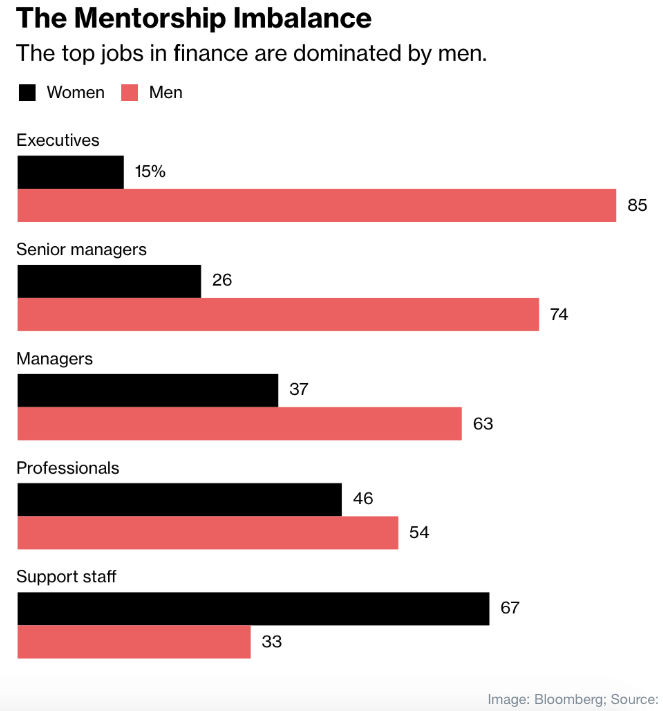Looking back on 2018, it was a year of progress for women, as well as setbacks. Women around the world stood together in the unprecedented #MeToo movement, shining a spotlight on the deep-rooted problem of sexual harassment and assault. And earlier this month, the 116th US Congress made history with a record number of women sworn into office.
Despite those gains, the global gender gap improved only marginally compared to the prior year – the World Economic Forum predicted that it will take 108 years to close the gap at the current rate of progress.
And while 2017 was the year of the “silence breakers”, this year, in the wake of #MeToo, research has shown a growing number of men report being uncomfortable or afraid to work alone with a woman.
In fact, the number of men who are uncomfortable mentoring women has tripled. Some reports have gone as far to say some men are avoiding women altogether in the workplace – from not including female colleagues in business travel to avoiding one-on-one meetings.
This is not only detrimental to women’s careers, it’s discriminatory behavior.
But it’s not only the responsibility of men to fix it. In order to continue to move in the right direction, employers must ensure they have the right policies, programs and culture in place to combat this type of behavior.
Creating a safe environment
In my role as Chief People Officer, I feel a strong sense of responsibility to make sure that we’re creating a safe, constructive, and welcoming environment at Salesforce. Our goal is to foster an open dialogue and provide employees with the channels necessary to address concerns quickly and effectively.
For example, we use Chatter, our internal communications tool, which is visible to the entire company. It has an Airing of Grievances group where employees are encouraged to raise their concerns.
I also listen closely to various social media platforms – I read Glassdoor reviews everyday. This allows me to keep a pulse on employee sentiment and address areas for improvement in real-time. If employees prefer a more private channel, we use a secure, third-party hotline where they can report any concerns anonymously and confidentially.
It’s critical to foster a safe environment where employees feel comfortable speaking up. Through transparency and swift action, companies can mitigate bad behavior and maintain a healthy culture where employees feel welcomed, heard and included.
Utilizing data to expose the gaps
Three years ago, Salesforce made a commitment to ensure equal pay for equal work. Since then, we’ve conducted three global equal pay assessments, which have resulted in the company spending nearly $9 million to address any unexplained differences in pay between men and women, as well as race and ethnicity in the US. We found – and fixed – this gap by looking at data we had never looked at before. It was a major “a-ha” moment in my career.
Today, I’m asking for data that I wouldn’t have thought about in previous years. For example, we’re not only asking the question how many women and people of color are in our organization, but how many are we hiring? How many are we promoting? How many are leaving the company – and where are they going?
We also look at the breakdown of merit across genders and race. If there are gaps, we address them with our leadership team. In fact, our executive team now reviews the diversity numbers of their respective organizations on a monthly basis.
Data tells a story, and it empowers business leaders to reward progress and address areas for improvement in hiring, attrition, promotions and more. This helps keep everyone accountable for the company’s progress.
As we face new challenges across industries and new threats to equality – employers, CEOs and business leaders are responsible for looking at the impact within their four walls.
Take equal pay at Salesforce for example – that wouldn’t have been possible without the championing of our co-CEO, Marc Benioff. It’s the tone from the top that shifts the culture within the company.
As business leaders, employees trust us with their careers, their pay, and their protection. We cannot let fear dictate behavior in the workplace, especially if it leads to the potential discrimination of some groups. This is an incredible responsibility that should not be taken lightly – your culture, and ultimately your business depends on it.
Editor’s Note: This story was first published on the World Economic Forum site in conjunction with the 2019 World Economic Forum Annual Meeting in Davos, Switzerland.



















